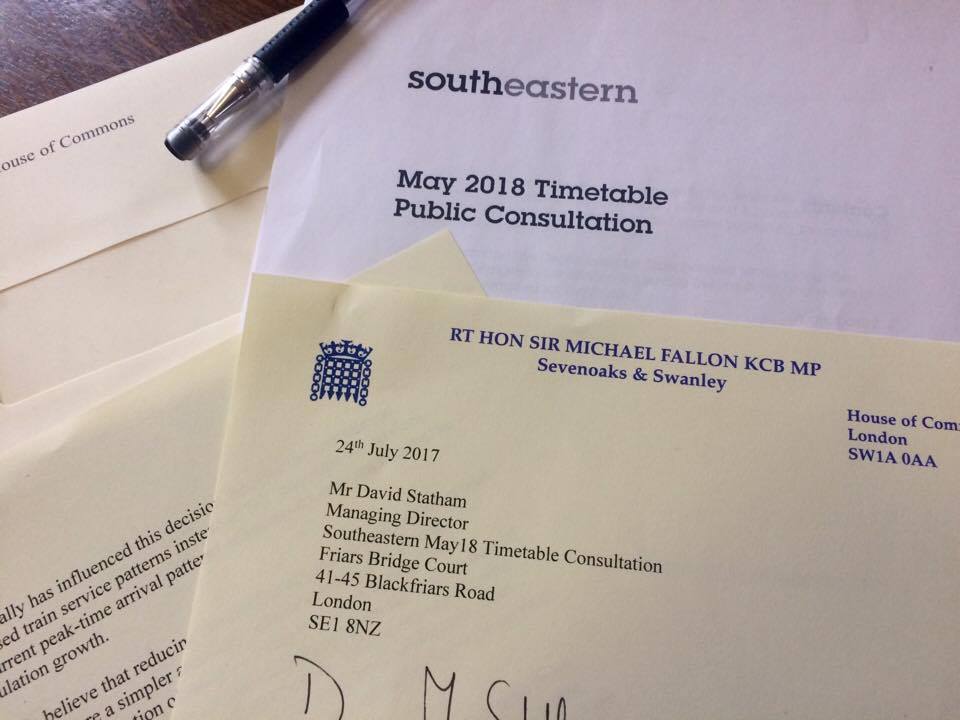It’s the summer of consultations. The Department for Transport, Network Rail, Thameslink and Southeastern have all launched their plans for 2018. I’ve responded to all four. I hope to respond to many more in the future, because getting our railways right is important; especially now, before our young people start new jobs in the City, before school starts up again, and before families return to work.
In March, I made the case for passengers in Sevenoaks and Swanley to the Government consultation on the new South Eastern franchise. It was a great opportunity to argue for more space on trains, improved compensation arrangements, an Oyster-style network, and an end to the unacceptably poor service many of us have endured for far too long. This was accompanied by a lengthy letter I handed personally to the Transport Secretary, demonstrating to him my determination to ensure that passengers are finally put first.
I also helped draft a joint letter to the Rail Minister, which was signed by twelve other Kent MPs, calling for a major rethink of our rail strategy in the South East. The more pressure we put on those in charge, the more likely we are to get results.
The Kent Route Study is not up to scratch. Network Rail must consider further solutions beyond those mentioned in the draft in order to meet the projected population proliferation. It’s crucial that our railways have the capacity to meet the increasing demand. I responded to the consultation in June and have requested a meeting with Network Rail to discuss the proposals in more detail.
Whilst Southeastern’s 2018 timetable proposals are underwhelming, Thameslink’s new 2018 timetable proposals are more promising. With plans to double the number of trains every hour from Swanley and introduce faster routes from Sevenoaks, it seems Thameslink are finally listening.
That’s why these consultations are important and that’s why I’ve taken considerable time to research and respond to them. Now we need to ensure that the very best of the plans are delivered.
